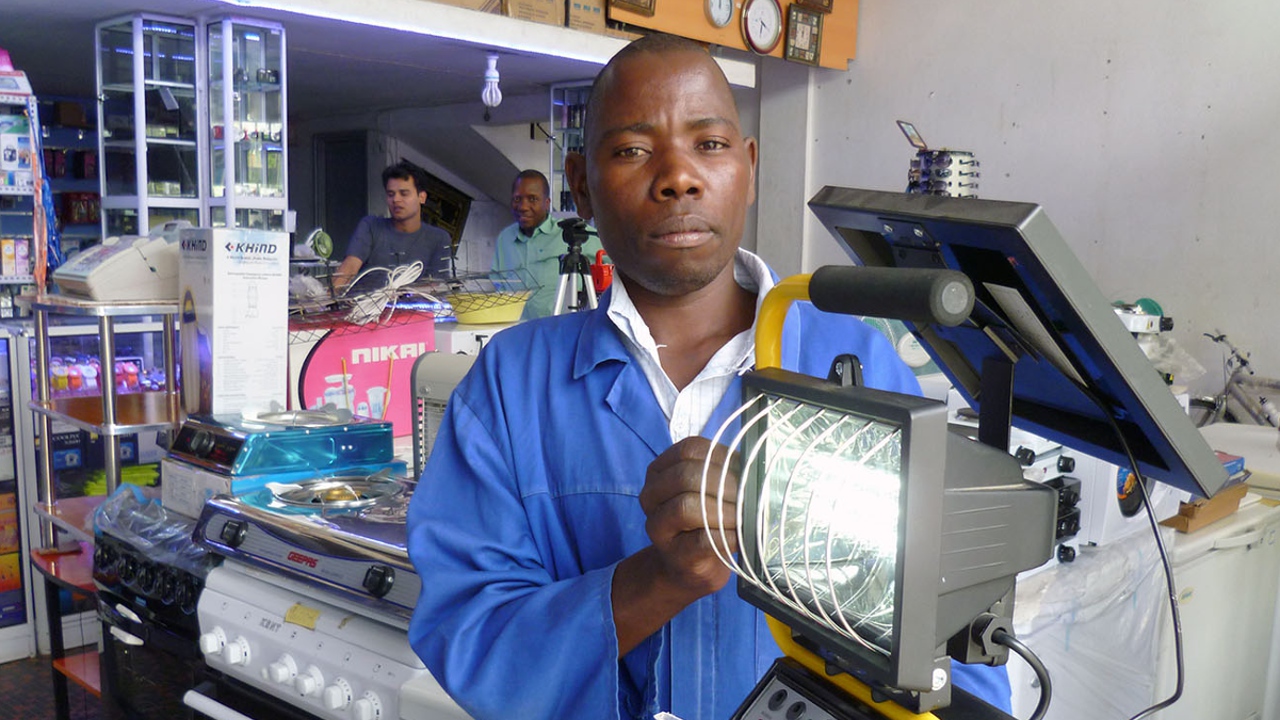
The Rising Powers, Clean Development and the Low Carbon Transition in Sub-Saharan Africa
Project details
Discipline: Area Development Studies (Geography)
Funded Period: 01 September 2012 -28 February 2015
Overview
This interdisciplinary research project seeks to examine how, why and to what extent the Rising Powers (specifically China, India and Brazil) are enabling the transition to low carbon energy systems in Southern Africa. The project will explore the range of actors, institutions, partnerships and policy-making processes involved in these contemporary forms of ‘South-South’ co-operation and technology transfer and aims to identify the key interests and beneficiaries being served here.
Empirically focused on case studies of Mozambique and South Africa, the project will assess the implications of the growing involvement of the Rising Powers in Southern African energy systems for the affordability, accessibility and sustainability of energy services in the region and will analyse how the Rising Powers are shaping the provision of energy services for productive uses (e.g. cooking, lighting and mobility). The project also seeks to assess the implications for the wider governance of energy and climate change at the local, national, regional and global scales. Using a combination of semi-structured interviews and community-based participatory research methods the research will also explore the dynamics of the low carbon transitions being created and enabled by the Rising Powers in Southern Africa, which are uneven and differentiated technically, socially and spatially.
Project team
Principal Investigator
Professor Marcus Power, Durham University.
Other members of the core team
Co-investigators
Professor Harriet Bulkeley, Durham University
Professor Peter Newell, University of Sussex
Dr Adrian Smith, University of Sussex
Dr Gisela Prasad, Energy Research Centre, University of Cape Town
Dr Wei Shen, Three Gorges University, China
Research Associates
Dr Joshua Kirshner, Durham University
Dr Lucy Baker, University of Sussex
Consultative Partners
Dr Ewan Bloomfield, Practical Action
Dr Antonio Carlos Filgueira Galvão, Centre for Strategic Studies and Management
Marcelo Khaled Poppe, Centre for Strategic Studies and Management
Mayra Juruá, Centre for Strategic Studies and Management
Professor Caroline Humphrey, University of Cambridge (ch10001@hermes.cam.ac.uk).
Based at the University of Cambridge, Professor Humphrey has worked in Russia, Mongolia, China, India, Nepal and Ukraine. She has researched a wide range of themes including Soviet and post-Soviet provincial economy and society; Buryat and Daur shamanism; Jain religion and ritual; trade and barter in Nepal; environment and the pastoral economy in Mongolia and the history and contemporary situation of Buddhism, especially in Inner Mongolia. Her recent research has concerned urban transformations in post-Socialist cities.
Other members of the core team
Franck Billé, Project Coordinator, University of Cambridge (fb265@cam.ac.uk).
Franck is Research Associate in the Department of Social Anthropology, and member of the Mongolia and Inner Asia Studies Unit, University of Cambridge. His current project focuses on representation and mimicry in the twin cities of Blagoveshchensk and Heihe, on the Sino-Russian border. He previously carried out research in Mongolia where he investigated the prevalence of anti-Chinese sentiments. His book Sinophobia: Anxiety, Violence, and the Making of Mongolian Identity is forthcoming with the University of Hawai’i Press.
Dr Sayana Namsaraeva, University of Cambridge (sn444@cam.ac.uk).
Sayana is Research Associate in the Department of Social Anthropology, University of Cambridge. Previously she was a lecturer at the Institut für Religionswissenschaft, Bern University. During her recent post-doctoral research at the Max Planck Institute for Social Anthropology she conducted extensive fieldwork on border regions of the Russian, Chinese and Mongolian territories. She is currently working on her book on Qing imperial representatives (ambans and jiangjuns) to the Inner Asian frontier with Russia is forthcoming with the Oriental Literature Publishing House (Moscow).
In addition to the core team an overview of associated researchers is available on the North Asian Borders Network website.
Publications
- Policy brief: Rising powers, lowering emissions?
- Shen, W and Power, M (2016) ‘Africa and the export of China’s clean energy revolution‘, Third World Quarterly
- Kirshner, J. and Power, M (2015) ‘Mining and extractive urbanism: postdevelopment in a Mozambican boomtown‘, Geoforum, 61, pp67-78.
- Baker, Lucy (2015) ‘The evolving role of finance in South Africa’s renewable energy sector‘. Geoforum, 64, pp. 146-156. ISSN 0016-7185
- Baker, Lucy (2015) ‘Renewable energy in South Africa’s minerals-energy complex: a ‘low carbon’ transition?‘, Review of African Political Economy, 42 (144), pp. 245-261. ISSN 0305-6244.
- Baker, Lucy (2016) ‘Post-apartheid electricity policy and the emergence of South Africa’s renewable energy sector‘, Working Paper, UNU-Wider, Helsinki.
- Baker, Lucy (2016) ‘Technology development in South Africa: the case of wind and solar PV‘, Working Paper, SPRU, Sussex.
- Baker, Lucy, Burton, Jesse, Godinho, Catrina and Trollip, Hilton (2015) ‘The political economy of decarbonisation: exploring the dynamics of South Africa’s electricity sector‘, Working Paper, Energy Research Centre, UCT, Cape Town, South Africa.
- Power, M, Newell, P, Baker, L, Bulkeley, H, Kirshner, J and Smith, A (2016) ‘The political economy of energy transitions in Mozambique and South Africa: The role of the Rising Powers‘, Energy Research and Social Science, 17, pp10-19.
- Research briefing: The Rising Powers and the low carbon transition in Sub-Saharan Africa
- Baker, L, Newell, P and Phillips, J (2014) ‘The Political economy of energy transitions: the case of South Africa’, New Political Economy, 19, 6, pp791-818.
- Baker, L and Wlokas, H L (2014) ‘South Africa’s Renewable Energy Procurement: A New Frontier’, Tyndall Centre Working Paper 159.
- Baker, L (2014) ‘Renewable energy in South Africa’s Minerals Energy Complex: a ‘low carbon’ transition?’, Review of African Political Economy.

A workshop technician with solar powered lamp.
